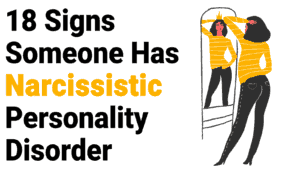Domestic violence affects nearly 3 million people each year. Women and men both fall victim to this horrendous act every single day. Often, they do no tell anyone what they are going through.
Knowing the warning signs can change their life for the better. These signs may be the only way you will ever know that something is wrong. Never ignore it if you suspect that there is abuse, even when the person tries to hide it.
While you shouldn’t ignore the signs, you also shouldn’t push too hard if the victim isn’t willing to talk. It can only cause them to isolate themselves further from those who love and care about them. Asking about it gently is always worth it, however, so knowing how to tell if someone is a victim of domestic violence is essential.
The Primary Warning Signs of Domestic Violence
According to the counselors at the National Domestic Violence Hotline, here are some of the key things you’ll see.
Physical Signs
- Blackened eye(s)
- Split or swollen lip
- Marks on their neck (ordinarily red or purple)
- Sprains in their wrist
- Bruises, frequently on their arms
- Unexplained injuries that occur often
- Broken bones with explanations that don’t add up
Emotional Signs
- Low self-esteem, especially if they didn’t have low self-esteem before
- Apologies too often, especially about insignificant things
- Timid behavior
- Fearful most of the time
- Changes in eating or sleeping patterns
- Unexplained anxiety or always on edge
- Drug use
- Depression
- No longer participating in activities they once enjoyed
- No longer enjoying hobbies
- Suicidal comments
Behavioral Signs
- Unusually withdrawn or distant
- Backing out of plans or appointments at the last minute
- Missing important meetings
- Showing up late often
- Being overly concerned about the privacy of their personal life
- Isolating themselves from those they were close to
Why The Domestic Violence Victim Might Stay With Their Abuser
For someone who has never been the victim of domestic violence, it may be difficult to understand why a victim stays. Some of the reasons include:
- Fear of physical retaliation if they try to leave
- They still feel love for their abuser
- They believe or hope their abuser will change
- Their abuser promises to change and shows remorse
- For married couples, some victims don’t believe in divorce
- When a couple has children, the victim may be staying only so the children’s lives aren’t uprooted
- They believe the violence is their fault
- Low self-confidence
- Fear of being lonely since they may have isolated themselves from their loved ones
- The pressure to stay from those who don’t know about the violence
- Not enough money to live on their own
- No place to go or a vehicle of their own
How You Can Help a Domestic Violence Victim
1. Make time in your schedule for them
Even if they have canceled plans at the last minute before, make sure you have time to spend with them. Sometimes it’s hard for victims also to ask to spend time together, and it can be even harder for them to leave their homes.
Always make yourself available to them so that they know you aren’t going to turn your back on them. This situation may lead to opening up to you and asking for assistance. Just remember to always protect yourself, too, by setting up plans when things seem to be calm for the victim so that you don’t find yourself in the middle of a domestic dispute.
2. Begin the conversation about your worries.
If you wait for the victim to open up on their own, you may get nowhere. Instead, calmly and gently tell them that you are worried about them. Explain why you are afraid and point out the changes that you have noticed.
Assure the victim that you’ll be discreet about anything that you discuss, and don’t pressure them to continue talking if they seem uncomfortable. Only keep asking questions if the victim is readily willing to give answers because making them uncomfortable could cause them to avoid making plans with you next time.
3. Listen but don’t judge
Remember, you may not understand why a victim stays in a violent situation. It isn’t for you to decide. Your only mission is to help the victim when they are ready.
This impartiality means that as you listen to them, don’t be judgmental. You should even try to avoid giving unsolicited advice or solutions. Simply let the victim talk until they don’t want to talk anymore.
Now, don’t think you can’t ask questions to clarify things they describe. Those types of questions are generally okay. Just remember that it is most important to be there to listen.
4. Tell the victim that you believe them
Often, in a domestic situation, the abuser can hide their true colors from those outside of the home. This behavior makes it hard for a victim to come forward with the truth because they may be afraid they won’t be believed. To make it easier for the victim to keep going to you for help, make sure they know that you understand them.
Just knowing they have someone who believes what they are saying will give them hope for the future and a small dose of relief in the present. Say things to them like “I believe you,” “none of this is your fault,” and “you don’t deserve do go through this.”
 5. Validate their feelings, even if they are contradictory
5. Validate their feelings, even if they are contradictory
In this type of situation, the victim may understand how terrible their abuser is and still feel love toward them. They also may feel guilty themselves while also being angry. Another common emotional contradiction is for the victim to have hope but also feel despair.
Don’t question their feelings. Instead, validate them. Tell the victim that it is reasonable to feel the way that they are feeling.
Most importantly, tell them that what is happening to them is not okay. Make it clear that living with constant fear, guilt, despair, or any other feelings that are brought on by the situation is not normal.
Sometimes, victims may not even realize that their situation is abnormal. If the victim experienced this type of violence as a child or witnessed many couples harm each other, chances are they believe it’s normal.
Again, do not be judgmental as you validate their feelings, but do tell them that they are in a dangerous situation that could escalate at any time and that you are worried about them.
6. Offer your help and support
Be specific when offering by telling the victim precisely what you can and will do for them. Help them look up phone numbers and other resources that can help them. They may need to contact social services, an attorney, a therapist, or even the police.
Try to go in prepared with brochures, or pamphlets about their situation, but don’t pull them out unless they vocalize that they do want help. Pulling out your information too soon could spook the victim and make them not want to talk.
If the victim asks for help with something specific and you are able (and willing) to do it, definitely step up and get it done. If not, offer them information to a resource that can help them with their specific request.
The most important thing is always to be available for them to reach out to or for moral support during the process.
7. Help come up with a safety plan
Even if the victim isn’t quite ready to leave their situation yet, they will need a safety plan for when violence occurs again, if it escalates or if they decide they need to leave home. Creating a safety plan will make it easier for them to escape because they will already have it in mind, and they will be more psychologically prepared to do it.
In the safety plan, you should include a safe place to go, an excuse to leave, a code word that only family and close friends know that signifies that help is needed, a list of emergency contacts, and an escape bag. The escape bag should include:
- cash
- birth certificates
- social security cards
- any other important documents
- keys
- basic toiletries
- a change of clothes
Final Thoughts On Helping A Domestic Violence Victim
Victims of domestic violence don’t always want help. Even if all of the warning signs are there, don’t push if they don’t want to talk. It is essential to be available to speak with them, however, just in case they are ready to accept some help from you.
Have your resources ready so that you have them prepared the moment they ask for help. Assure the victim that they are not alone in the situation. For further assistance, the National Domestic Violence Hotline at 1?800?799?7233 can offer immediate assistance.
Remember always to protect yourself first. If you feel like your own life may be in danger, back off and call the police immediately. You can’t rescue everyone, and your safety is imperative, too.


















